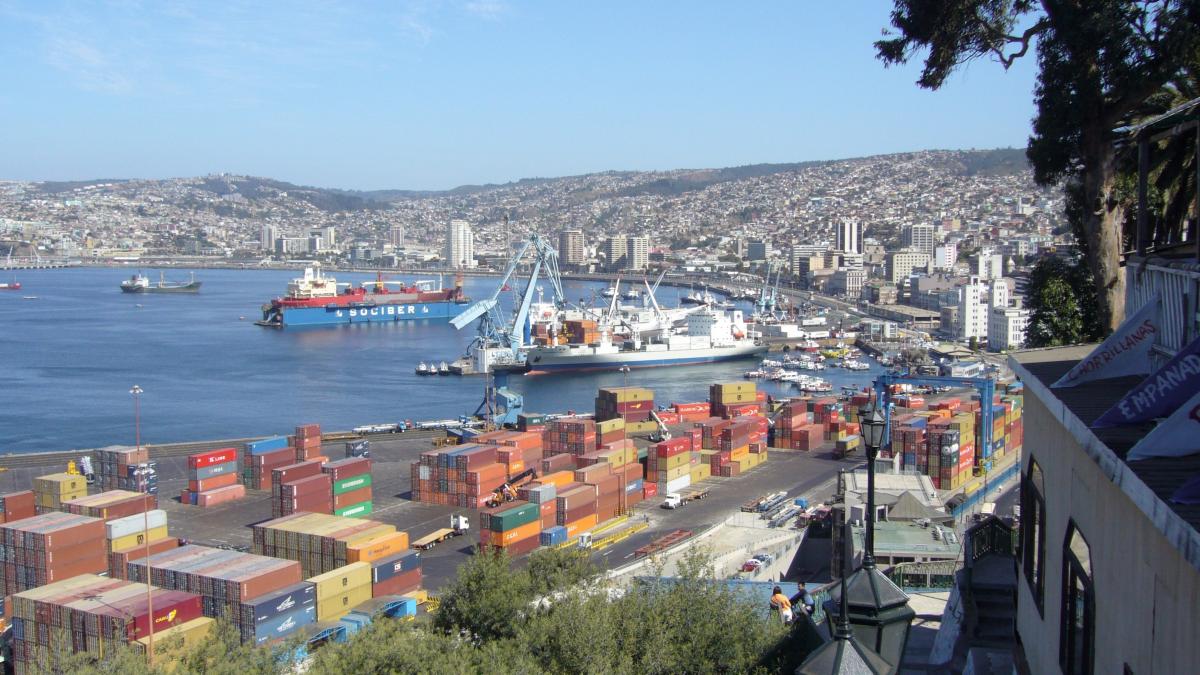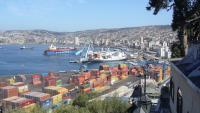You are here
Back to topChile Undertakes Public–Private Effort To Address Ports Crisis

Five key industry associations from Chile’s export and import sectors recently announced a public–private collaborative effort to tackle a logistics crisis in Chile that has led to higher costs and delays in ocean freight shipments of food products and other goods.
A joint news release identified the industry associations involved as the National Chamber of Commerce, the National Association of Consumers and Users (Conadecus), the Food Export Council, the Chilean Fruit Exporters Association (ASOEX) and the Federation of Fruit Producers of Chile (Fedefruta), which, along with port logistics operators, are “working with carriers, drivers and workers from the ports of Valparaíso and San Antonio.” Meetings had already been convened with Chile’s Ministry of Economy, Development and Tourism and Ministry of Transport and Telecommunications.
According to Claudio Cilveti, president of the Food Export Council, Chile exports around $18 billion worth of food each year. Approximately one-quarter of this by value is fresh fruit. Chilean fresh fruit exporters rely on ocean shipping to maintain cost competitiveness in export markets. However, with shipping times already stretching to weeks or more than a month for vital Northern Hemisphere markets, fresh fruit is especially vulnerable to delays during the shipping process.
In May of this year, the president of Fedefruta referred to the 2021/22 Chilean fruit export season as one of the most complex in the last 25 years owing to port congestion and other logistical snarls.
While conceding that some portion of the issues such as elevated costs and delays stem from global factors such as the COVID-19 pandemic and the war in Ukraine, the industry associations believe that there is still plenty of work that can be undertaken within Chile to try to ease the crisis:
The national solution to the problem involves taking short and medium-term measures to improve efficiency of Chilean ports, solving the shortage of workers throughout the logistics chain, and finding a way to mitigate the rise in shipping rates, among other issues.
One of the measures being considered is the authorization of the Port of Ventanas to receive cargo ships. Other measures include giving priority to food and strategic supplies in port operations, making chamber ships available in the Valparaíso and Coquimbo terminals and the ports of the Eighth Region, and modifying the wave height restrictions in the port of San Antonio, which would facilitate the arrival and departure of more ships.
The Chilean Minister of Economy Nicolás Grau commented that “there is permanent coordination with the Ministry of Transport and Telecommunications to address these challenges prior to the months of greatest demand between November 2022 and April 2023.” He added that “we are working on relaunching the Collaborative Logistics Plan for Foreign Trade (PLC),” which involves the key industry associations and features “participation by multiple players throughout the logistics chain.”
According to Ronald Bown, president of ASOEX, “the loss of fruit and the uncertainty generated by the inability to have fruit arrive on time to international clients is generating a crisis that affects the image of Chile as a premier global supplier. This severely jeopardizes Chile’s place as the main producer-exporter of fresh fruit in the southern hemisphere and fifth largest worldwide. Therefore, we are looking for urgent solutions from the joint efforts of the public-private sectors. We are off to a great start. We have all the right partners sitting at the table to solve the main issues, and we are confident that during the upcoming season we will return to pre-pandemic levels of service.”
Image: Luigi bosca on Wikimedia Commons, distributed under a CC BY-SA 3.0 license














Add new comment